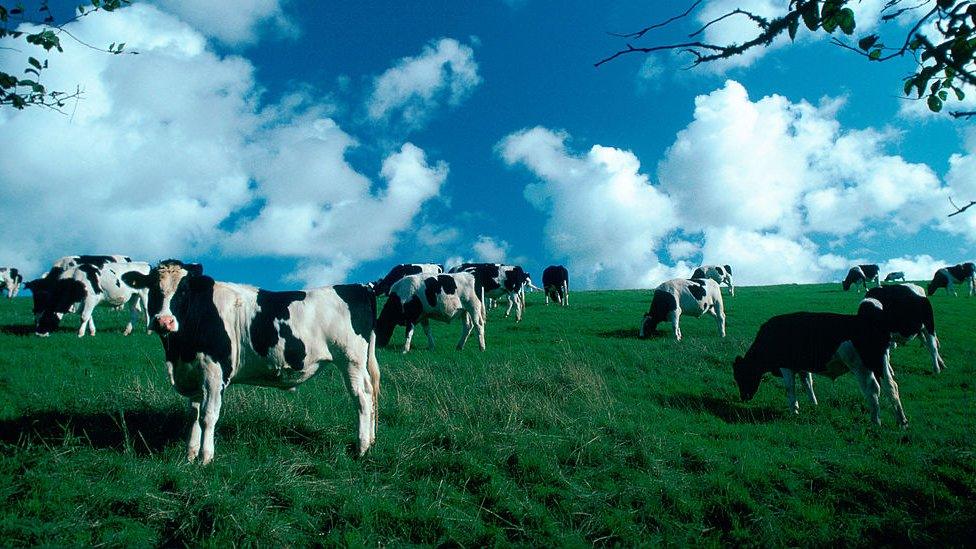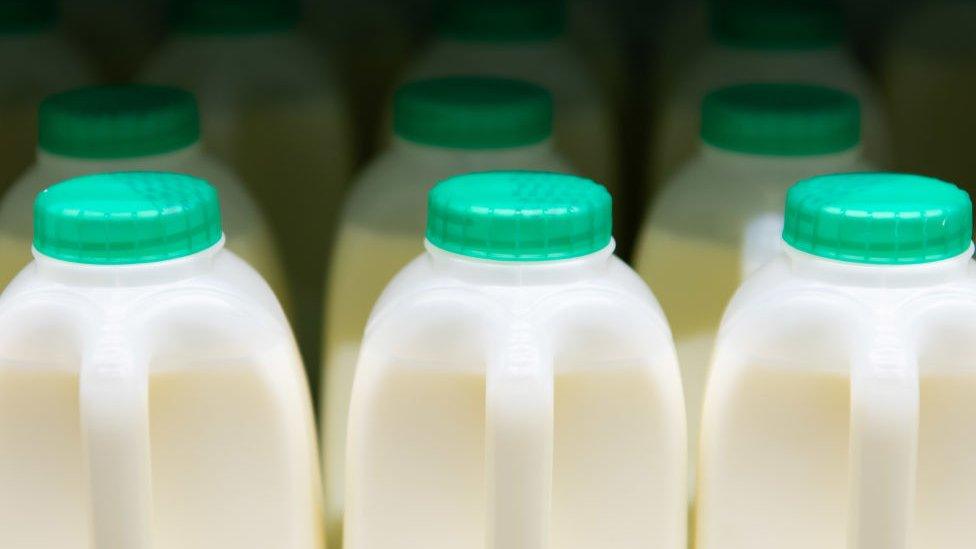Climate change: Pledge to cut emissions from dairy farms
- Published
- comments

Methane is produced by cattle
A dairy firm is pledging to make its operations carbon-neutral from cow to supermarket by 2050, including more than 2,000 farms in the UK.
This will require "radical changes" over the coming decades, including developing new technologies, the dairy co-operative, Arla Foods, said.
It admitted the target was "ambitious", but said it was achievable.
However, the Vegan Society said there was no way to make dairy a climate-friendly product.
Gases which help to heat the atmosphere and contribute to climate change are a by-product of the dairy industry.
They include direct emissions of methane, a potent greenhouse gas, from cows, and carbon dioxide and nitrous oxide from the likes of packaging, transportation and fertilisers.
Arla, the largest farming co-operative in Europe, said it aimed to neutralise all the CO2 produced by the dairy farms of its 10,300 members.
This would involve improvements in the supply chain to off-set unavoidable emissions, it said.
"It's an ambitious target, but if everyone works together then it's possible," said Kari Dunford, an Arla member, who dairy farms 250 cows in Somerset.
"There are 2,000 Arla farmers in the UK and if we all do our little bit then it's all going to make a difference."

The company said it had cut the amount of CO2 emissions from production and packaging by more than 20%.
It also said that, on farms, the CO2 emissions per kilo of milk have been reduced by almost a quarter over the last 20 years, and it was trialling new technologies for farms, such as producing clean energy from manure.
Commenting on the pledge, Joseph Poore of the University of Oxford said it was not clear what emissions would be included in the target.
"If it's just carbon dioxide, this is a very minimal target," he said. "If they are including methane, nitrous oxide, and feed production - which are dairy's main emissions - as well as tackling dairy's other environmental issues, then this is ambitious. Meeting it would set a new benchmark."
Will Gildea of the Vegan Society said there was "no way to make dairy a climate-friendly product".
"Cows produce large amounts of methane, a very damaging gas for our planet," he said. "Methane emissions pack a huge punch and warm the planet in the near-term, meaning they could trigger runaway climate change."